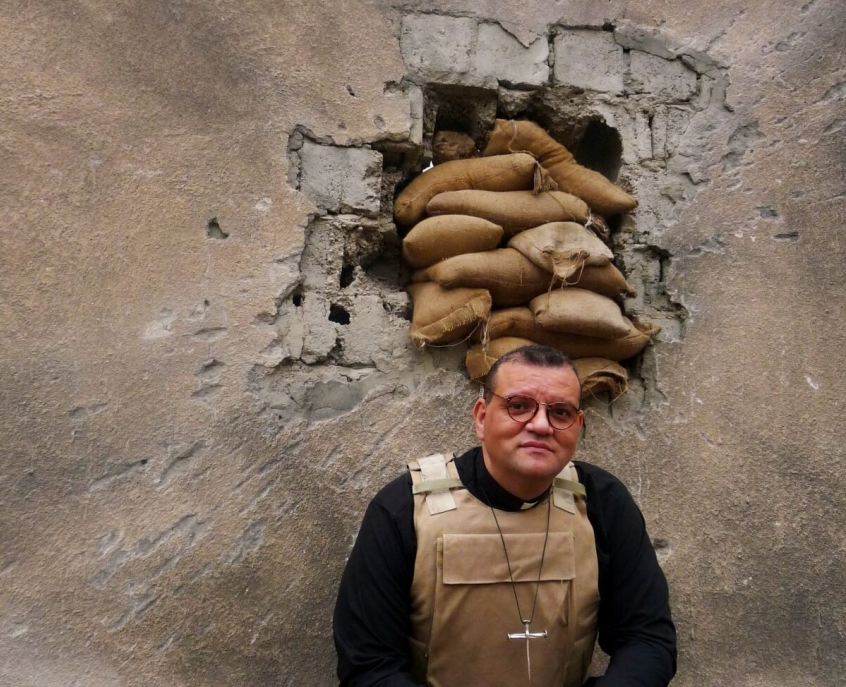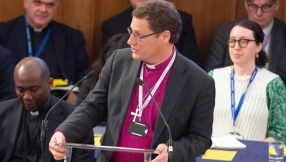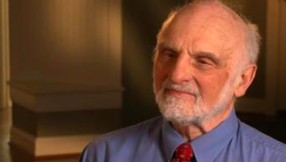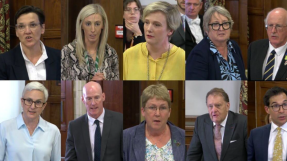
Canon Andrew White has been barred from holding a senior management position in a charity for 12 years.
The ban imposed by the Charity Commission follows an investigation into CAWRM, the trust behind Christian charity Jerusalem Merit, of which Canon White is an ambassador.
The investigation into CAWRM was linked to a separate investigation by the Commission into another charity connected to Canon White, the Foundation for Relief and Reconciliation in the Middle East (FRRME). The Commission said the suspension against Canon White was related to his actions in FRRME.
In a new report, the Commission said that founding trustees of CAWRM had made over £15,000 in unauthorised payments to a trustee, and failed to manage conflicts of interest with a company linked to Canon White.
While Ace White Gold was set up to trade in commodities, investigators said it had received over £14,000 from CAWRM for PAYE services.
The report was also critical of the failure of trustees to ringfence charitable funds that were held in Canon White's personal bank account during a period when CAWRM was unable to open a bank account.
"This failing led to the ambassador owing the charity money but due to inadequate record-keeping the founding trustees were unable to confirm how much," the Commission said.
Elsewhere, "serious concerns" were raised over £42,000 in cash transported out of the UK during trips to Jordan and Israel in 2018, and "significant sums" that were spent on overseas consultants and a school in Jordan "without clarity of what this was for".
The Commission added that it had "not seen evidence" that money raised from the sale of books written by Canon White but funded by CWRM had been donated to the charity.
"The inquiry concluded that the founding trustees had not considered or managed the personal benefit to Canon White and did not always act independently of him, as was their legal duty," the Commission said.
"An ambassador is not a formal role in the governance of a charity, and it is the trustees that should hold overall management, responsibility and control of a charity."
The Commission said some progress had already been made by trustees to address its concerns, including the implementation of safeguarding and data protection policies.
It has issued an order requiring trustees to go further by strengthening the charity's governance with the introduction of personal benefit and conflict of interest policies.
The order also urges trustees to consider the recovery of personal benefit money from Canon White and the unauthorised payments to one of the trustees.
Tim Hopkins, Assistant Director of Investigations and Inquiries at the Charity Commission said: "This case is a reminder that good governance is more than a bureaucratic detail.
"It should serve as a lesson for all charities in the importance of strong independent boards that protect and steer their charity towards furthering its purpose, in the interests of those it is set up to help. The role of an ambassador should be to support a charity and help it thrive.
"Our inquiry exposed a number of inappropriate arrangements and transactions which were overseen or permitted by the former trustees – including failures to manage the charity's relationship with its ambassador, identify and manage conflicts of interest, and prevent private benefit.
"We will monitor the trustees' compliance with our order to ensure that the changes we need to see are made."
Jerusalem Merit said in a statement that it believed adequate controls were now in place at the charity.
"We are a totally transparent organisation and, as stated, our goal is to aid refugees in Jordan. In doing this we rely heavily on our ambassador, Canon Andrew White, without whom the charity would not exist, alongside support staff," it said.
"His global presence has enabled funding to come from across the world and these have helped towards educating children, feeding and clothing refugees and also enabling health and medical care.
"Whilst we acknowledge that there were some initial shortcomings beyond our control, the trustees are of the opinion that there is now adequate governance and controls in place."
"As part of the statutory inquiry we, the trustees, are reviewing performance, competencies and communication levels and will make recommendations for improvement."













